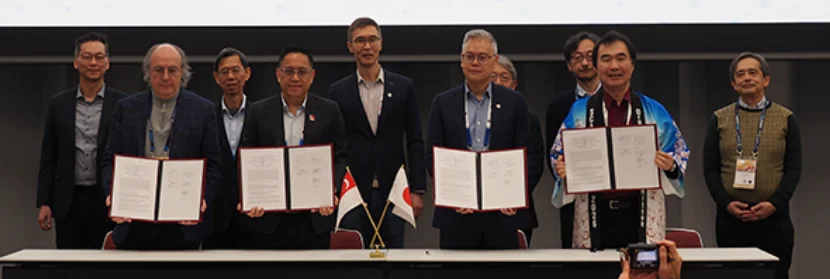Dr. Mark Jackson, a leading expert in quantum computing and Senior Quantum Evangelist at Quantinuum, recently shared his views on the imminent impact of quantum technology. With a PhD in superstring theory and cosmology, Jackson’s extensive background positions him as a crucial voice in the quantum revolution. Here, he offered his vision for the future and the necessity of early investment in quantum computing.
“The market potential for quantum computing isn’t just in the billions; it’s believed that it will be in the trillions,” Jackson said.
Jackson stressed the importance of early adoption.
“It takes time to write the software, to understand how this works, to understand how it affects your industry. It’s not simply a matter of turning on a dime once you see the headlines about quantum being relevant,” he said. The complexity and novelty of quantum computing demand a proactive approach to ensure organizations are ready to leverage its capabilities.

Explaining the fundamental difference between quantum and classical computers, Jackson noted: “A normal computer is based on bits which are zero or one. A quantum computer is based on quantum bits, or qubits, which can be zero and one at the same time.” This property enables quantum computers to consider multiple solutions simultaneously, vastly increasing computational power. “You get this exponential scaling of possible solutions that a quantum computer would consider,” he added.
Jackson called attention to some key applications where quantum computing excels.
“One thing that quantum computers are very good at is chemistry, being able to do material science calculations, trying to simulate molecules and understand how they’ll behave,” he said. Personalized medicine is another promising field, as quantum computing could significantly reduce the time and cost required to develop new drugs. “With a quantum computer, we think that we could speed this up and make it much more efficient,” Jackson explained.
Cybersecurity is also a critical area of concern and opportunity. Jackson pointed out: “Quantum computing is relevant to hacking or cybersecurity. Now that quantum is becoming pretty powerful, a lot of governments and communications companies are very concerned about this.” Companies like Apple and Zoom have already started upgrading their cybersecurity measures to protect against potential quantum threats.
Despite its potential, Jackson acknowledged the current limitations of quantum technology.
“Unfortunately, it’s very expensive to build a quantum computer right now, and so it’s only really very developed countries that are investing in this,” he said. However, he remains optimistic about the future accessibility of quantum computing. “The price of quantum computing is coming down, and a lot of people have access to it over the cloud.”
Jackson dispelled the common misconception that quantum computing is still decades away.
“By far the biggest misconception that I come across is that people think that quantum computing might be relevant in 20 years,” he said. He stressed that significant breakthroughs have occurred in the past decade, rapidly advancing the field. “Quantum has increased its performance by about a factor of ten every year,” Jackson noted, while predicting that practical applications of quantum computing will emerge within the next two years.
Jackson urges organizations to begin investing in quantum technology now to stay ahead.
“The organizations which will take most advantage of this are those who have already begun. It really is essential that if you’re not already investing in quantum, you start developing expertise and investing in this now,” he advised. The future of quantum computing promises to revolutionize various industries, and early preparation will be key to capitalizing on its transformative potential.
Featured image: Credit: PNNL
















